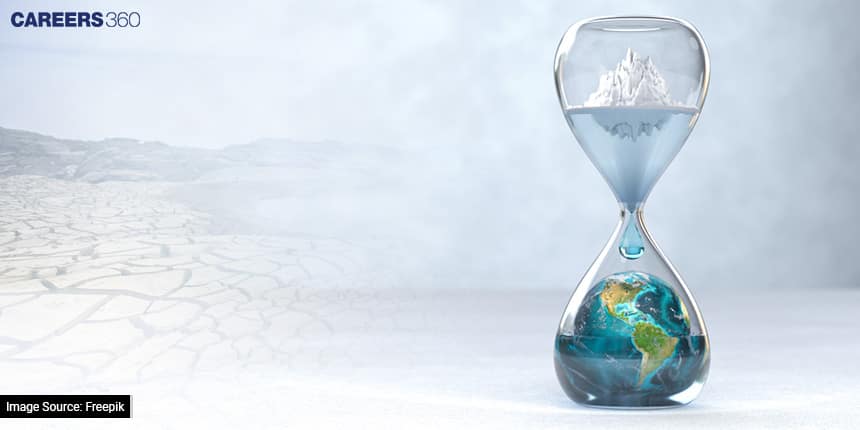Global Warming and Climate Crisis: What Is Causing Shifts In Seasons And Unexpected Weather?
Have you noticed that recently, the seasons and weather have been more unpredictable and changed within a short period of time? It is raining in the summer, and delayed monsoons are seen during the rainy season. Climate change is a serious crisis that is worsening with the passing of time. It has been more problematic than ever before as climate change is happening more quickly than expected. We are lacking solutions in this race, but we can win if the right decisions are taken to save the environment and reverse the climate effects.
This Story also Contains
- What Exactly Is Causing Climate Change?
- How Does Climate Change Lead To Shifts In Seasons?
- Climate Crisis And Impact On The Weather
- How Are Humans And Other Animals At Risk?

The devastating consequences have touched every corner of the globe. Sudden rises in the temperature resulting in the melting of the ice caps, increased sea water levels, frequent floods, and more are some disastrous effects of climate change related to water. Other than these, the burning of forests, changes in the ecosystem leading to increased risks to species, acidification of oceans, and so on are some other natural disasters increasing due to climate change.
What Exactly Is Causing Climate Change?
Human intervention in the environment has crossed the standard limits, due to which nature is undergoing irreversible changes. The exploding population has been abusing the resources of the environment and changing them as per their needs. This is changing the dynamics of the environment and depleting abiotic factors, leading to the global climate crisis.
The major cause of climate change is believed to be the emission of carbon dioxide in billions of tonnes. Increased human activities like gas production and burning more coal and oil have led to a drastic rise in greenhouse gases. Instead of lowering, the gases are constantly rising, which is increasing the overall temperature of the planet. This rise has been creating havoc by disturbing the natural elements and thereby triggering and causing climate change.
How Does Climate Change Lead To Shifts In Seasons?
Natural changes follow a seasonal pattern, but climate change has been disturbing the natural phenomenon, leading to unexpected weather and shifts in the climate. Scientists and researchers have observed that higher global temperatures produce warm winters, leading to less snow and more pests.
The winters will be warmer and shorter, allowing spring to occur early. However, this early bloom is not right, as pollination problems can arise.
High global temperatures will have harsh summers that can affect the health of people by causing heat stroke, severe allergies, and more. Hotter and longer summers may also result in droughts as the heat waves or sun’s energy directly hit the ground.
Conclusively, devastating global climate changes will impact the severity and duration of the seasons, thereby creating a shift in the seasons.
Also check - Biological Neural Networks As An Inspiration For Artificial Intelligence
Climate Crisis And Impact On The Weather
 Since the climate crisis is a global change, all regions have been impacted and introduced to slightly different weather than before. The primary reason for the climate crisis is increased global warming, so almost every region has been dealing with slightly warmer weather.
Since the climate crisis is a global change, all regions have been impacted and introduced to slightly different weather than before. The primary reason for the climate crisis is increased global warming, so almost every region has been dealing with slightly warmer weather.
It has been noted that regions with standard temperatures are now experiencing extreme weather conditions as temperatures above 40 and even 50 degrees Celsius are now frequently observed. This can potentially cause severe health effects in humans as well as the vegetation.
Apart from the hotter weather, many regions have experienced extreme rainfall, leading to flood-type situations. Some regions are even receiving heavy rainfall in a single day that is worth a month’s rainfall.
How Are Humans And Other Animals At Risk?
Hotter weather and seasons imply that the sun's rays would be more harmful. The excessive carbon accumulation in the environment has apparently created a hole in the protective outer layer of the Earth known as the ozone layer. Now, more sun rays can enter than are required by the planet, leading to severe heat rays’ impact on organisms.
Exposure to extreme heat waves has dangerous health effects that have been reported in the past few years as well. Weather-related deaths would be more common as the heat waves exceeded the tolerable limits.
The constant switch between weather conditions, like heavy rainfall followed by sun, can breed many pathogens and promote many infections.
Similarly, deforestation has made soil erosion and flooding more frequent than before. Due to the absence of trees, water can enter the settlement areas, causing the loss of lives and property.
The global climate crisis can only be controlled if quick actions are taken as soon as possible. Although the changes are now intense and irreversible, racing with these disturbances and adopting practises to restore the natural balance is the need of the hour. If we keep on ignoring the planet’s needs and equilibrium, we will soon be witnessing more disastrous and deadly conditions. Extreme heat waves, intense precipitation, compound disasters, deadly flooding, an increase in drought areas, wildfires, and more will be more frequent, causing irreplaceable damage to the Earth.
Also check - Understanding Harmonic Motion: A Differential Equations Approach
Applications for Admissions are open.
As per latest syllabus. Physics formulas, equations, & laws of class 11 & 12th chapters
JEE Main Important Chemistry formulas
Get nowAs per latest syllabus. Chemistry formulas, equations, & laws of class 11 & 12th chapters
JEE Main high scoring chapters and topics
Get nowAs per latest 2024 syllabus. Study 40% syllabus and score upto 100% marks in JEE
JEE Main Important Mathematics Formulas
Get nowAs per latest syllabus. Maths formulas, equations, & theorems of class 11 & 12th chapters
